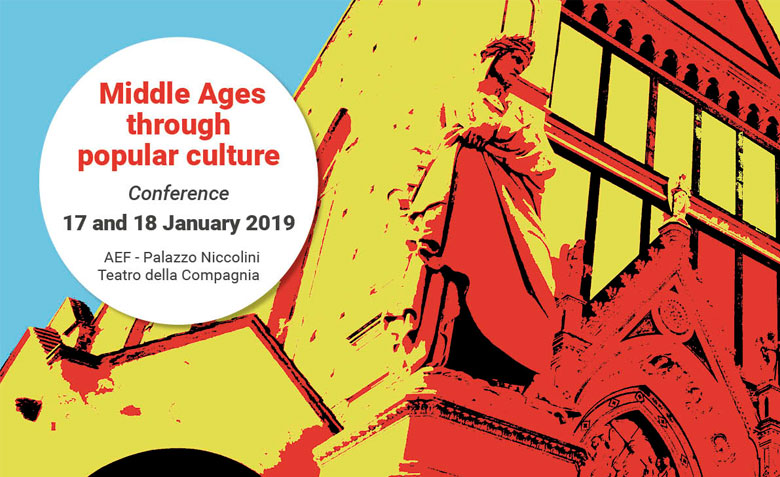
Florence is the city of art par excellence: an interweaving of history and beauty that winds through the squares in the shadow of the most majestic Renaissance buildings in the world, or along the bustling walls of tourists whom crowd the cobbled streets to visit its symbolic museums. However, that's not all: the Tuscan capital is an epicenter of creativity and culture in constant evolution, which starts from a privileged perspective - that of the city steeped in history - to interpret present and future.
Precisely right in the middle of this cultural ferment, last January 17 and 18 our school hosted the zero edition of the international conference "Middle Ages through popular culture", a moment of programmatic reflection to assess the research, teaching and learning of medievalism. Starting from Dante, the two days saw experts and teachers from beyond the Alps, from the United States and from all over Italy, propose ideas on the most contemporary and "pop" themes as a magnifying glass for the decoding of a mysterious period and, in some respects, controversial, like that of "the middle ages".
The debate did not take long to ignite: from the passionate discussion on the figure of the heroine Joan of Arc, reinterpreted as a popular icon in the speech by Peter Jared Eubanks from James Madison University of Virginia, to the study of the work of Dante throughout the world, with its current limits, future perspectives and cross-media tools of the present to address it, in the panel by Brandon Essary of Elon University of North Carolina and Filippo Fonio from the Université Grenoble Alpes in France; or the keynote by Matteo Sanfilippo from the University of Tuscia on alternative "medioevi", generated by popular culture in the last twenty years and that of Tommaso Di Carpegna Falconieri of the University of Urbino "Ten ways to dream Medieval ... and perhaps one more".
And again, the focus on modern narratives, such as comics, Japanese manga, children's literature or the Western fantasy tradition, with the representation of a timeless Middle Ages, with standardizing and recurring elements in the collective imagination, such as the figure of Merlin the Magician, or the "forest system" as the scene of action; or the very current question of gender treated by Francesca Roversi Monaco of the University of Bologna through a detailed analysis of the role of the princess and her evolution in contemporary audiovisual productions.
So many ideas for reflection, in-depth analysis and new interpretations for a field of research still to be explored. Mark your calendars for 2019 with the first edition of the conference, don’t forget!



